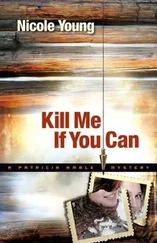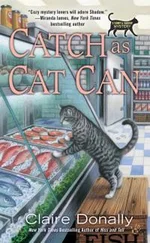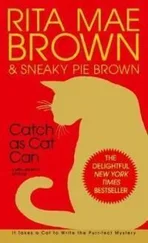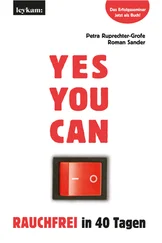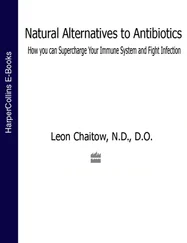I stayed only a few days in London. I was beginning to feel pressure on me, the same uneasiness that had plagued me in the States. I realized in London that leaving the U.S. hadn’t solved my problem, that Mexican police and Scotland Yard officers were in the same business as cops in New York or Los Angeles -that of catching crooks. And I was a crook.
Given that knowledge, and the small fortune in cash I had stashed away in various places, it would have been prudent of me to live as quietly and discreetly as possible under an assumed name in some out-of-the-way foreign niche. I recognized the merits of such a course, but prudence was a quality I didn’t seem to possess.
I was actually incapable of sound judgment, I realize now, driven by compulsions over which I had no control. I was now living by rationalizations: I was the hunted, the police were the hunters, ergo, the police were the bad guys. I had to steal to survive, to finance my continual flight from the bad guys, consequently I was justified in my illegal means of support. So, after less than a week in England, I papered Piccadilly with some of my piccadillies and flew off to Paris, smug in the irrational assumption that I’d resorted to fraud again in self-defense.
A psychiatrist would have viewed my actions differently. He would have said I wanted to be caught. For now the British police began to put together a dossier on me.
Perhaps I was seeking to be caught. Perhaps I was subconsciously seeking help and my subliminal mind told me the authorities would offer that help, but I had no such conscious thoughts at the time.
I was fully aware that I was on a mad carrousel ride, a merry-go-round whirling ungoverned from which I seemed unable to dismount, but I sure as hell didn’t want cops to stop the whirligig.
I hadn’t been in Paris three hours when I met Monique Lavalier and entered into a relationship that was not only to broaden my venal vistas but, ultimately, was also to destroy my honey hive. Looking back, I owe Monique a debt of thanks. So does Pan Am, although some of the firm’s officials might argue the point.
Monique was a stewardess for Air France. I met her in the Windsor Hotel bar, where she and several dozen other Air France flight-crew people were giving a party for a retiring captain pilot. If I met the honoree, I don’t remember him, for I was mesmerized by Monique. She was as heady and sparkling as the fine champagne being served. I was invited to the party by an Air France first officer who saw me, dressed in my Pan Am attire, checking in at the desk. He promptly accosted me, hustled me into the bar, and my real protests evaporated when he introduced me to Monique.
She had all of Rosalie’s charms and qualities and none of Rosalie’s inhibitions. Apparently I affected Monique the same way she affected me, for we became inseparable during the time I was in Paris and on subsequent visits. Monique, if she had any thoughts of marrying me, never mentioned it, but she did, three days after we met, take me home to present me to her family. The Lavaliers were delightful people, and I was particularly intrigued with Papa Lavalier.
He was a job printer, operator of a small printing shop on the outskirts of Paris. I was immediately seized with an idea for improving upon my check-swindling scam involving phony Pan Am vouchers.
“You know, I have some good connections in the Pan Am business office,” I said casually during lunch. “Maybe I can get Pan Am to give you some printing business.”
Papa Lavalier beamed. “Yes, yes!” he exclaimed. “Anything you want done, we will try and do, and we would be most grateful, monsieur.” Monique acted as an interpreter, for none of her family had the slightest command of English. That afternoon her father took me on a tour of his plant, which he operated with two of Monique’s brothers. He employed one other young man, who, like Monique, spoke fractured English, but Papa Lavalier said he and his sons would personally perform any printing jobs I might secure for their little firm. “Whatever you want printed in English, my father and my brothers can do it,” Monique said proudly. “They are the best printers in France.”
I still had the actual Pan Am payroll check I’d cashed for the stewardess in Mexico. Studying it, I was struck by the difference between it and my imaginative version of a Pan Am check. My imitations were impressive, certainly, else I wouldn’t have been able to pass so many of them, but one placed next to the real thing fairly shrieked “counterfeit!” I had been lucky to get by with passing them. Obviously the tellers who’d accepted them had never handled a real Pan Am check.
It occurred to me, however, that Pan Am checks might be very familiar to European bank tellers, since the carrier did the bulk of its business outside the continental United States. The thought had crossed my mind in London, even, when the teller in the one bank I’d bilked had seemed overly studious of my artwork.
“It’s an expense check,” I’d said, pointing to the bold black letters so stating.
“Oh, yes, of course,” he’d replied, and had cashed the check, but with a trace of reluctance.
Now I had another thought. Maybe Pan Am had a different-type check, maybe a different-colored check, perhaps, for different continents. I thought it best to check on the theory before proceeding with my plan. The next morning I called Pan Am’s Paris office and asked to speak to someone in the business office. I was connected with a man who sounded very young and very inexperienced, and soon proved he was the latter. I was becoming convinced that Lady Luck was my personal switchboard operator.
“Say, listen, this is Jack Rogers over at Daigle Freight Forwarding,” I said. “I got a check here, and I think your company must have sent it to us by mistake.”
“Uh, well, Mr. Rogers, why do you say that?” he inquired.
“Because I got a check here for $1,900, sent from your New York office, and I don’t have an invoice to match the payment notation,” I replied. “I can’t find any record of having handled anything for you people. You got any idea what this check’s for?”
“Well, not right offhand, Mr. Rogers. Are you sure the check’s from us?”
“Well, it seems to me it is,” I said. “It’s a regular green check with Pan American in big letters across the top and it’s made out to us for $1,900.”
“Mr. Rogers, that doesn’t sound like one of our checks,” the fellow said. “Our checks are blue, and they have Pan Am-Pan Am-Pan Am in faded-out wording all over the face, along with a global map of the world. Does yours have that on it?”
I was holding the stewardess’s check in my hand. He had described it perfectly, but I didn’t tell him that. “You gotta Pan Am check there?” I demanded, in the tone of a man who wanted to remove all doubts.
“Well, yes, I do, but…”
I cut him off. “Who’s it signed by? What’s the comptroller’s name?” I asked.
He told me. It was the same name appearing on the check in my hand. “What’s the string of little numbers across the bottom read?” I pressed.
“Why, 02…” and he rattled them off to me. They matched the numbers on the stew’s check.
“Nah, that’s not the guy who signed this check and the numbers don’t match,” I lied. “But you people do bank with Chase Manhattan, don’t you?”
“Yes, we do, but so do a lot of other companies, and you may have a check from some other firm operating under the name Pan American. I don’t think you have one of our checks, Mr. Rogers. I suggest you return it and establish some sort of correspondence,” he said helpfully.
“Yeah, I’ll do that, and thanks,” I said.
Monique flew the Berlin-Stockholm-Copenhagen run for Air France, a two-day turnaround trip, and then was off for two days. She had a flight that day. She was barely airborne when I appeared in her father’s shop. He was delighted to see me, and we had no trouble conversing between the French I had learned from my mother and the English of his young printer.
Читать дальше

